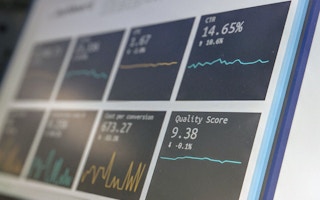As countries in our region continue to cope with the Covid-19 pandemic and its grave socioeconomic impacts, the public health crisis is also emerging as an unprecedented policy challenge—one that focuses not only on economic recovery but a resilient pathway towards sustainable growth.
With most non-essential businesses grappling with the massive disruption in their operations and across supply chains, the pandemic is expected to bring about severe economic impacts likely to exceed that of the 2008-09 global financial crisis.
An updated regional growth forecast recently released by the Asian Development Bank (ADB) estimates that a scenario of longer containment and larger demand shocks would lead to $692 billion losses for China alone, as well as $200 billion for the rest of the developing economies in Asia.
There is no doubt short-term, immediate stimulus measures must prioritise saving lives and minimising the pandemic’s heavy toll on our society and livelihoods.
But once the virus is controlled, policymakers and business leaders in the region must work to ensure that, where possible, green initiatives such as low-carbon investment and resilience building are integrated into the long-term recovery plans.
An ambition gap persists: our findings show that only 36 per cent of the companies in the region have reported a year-on-year decrease in direct and energy-based emissions, and even fewer companies reported engaging with both their suppliers and customers.
An earlier ADB study shortly before the pandemic projects an average of a 13.6 per cent decrease in per capita GDP driven by climate impacts across Asia Pacific by the mid-century.
Another report from the UN released last year puts the annual economic loss from growing disasters (including those triggered by climate change and environmental degradation) for the region at $675 billion, or around 2.4 per cent of the region’s GDP.
Pandemics and the climate crisis are both “risk multipliers”: they expose and exacerbate existing vulnerabilities in our socioeconomic systems, leaving our economies and societies more susceptible to future shocks that have the potential for large scale disruptions.
It is therefore imperative that we look at these matters in conjunction and ask: what kind of stimulus and recovery packages should we envision in the post-Covid world that would help us build better resilience to future health or environment crises?
Disclosing and measuring environmental risks remains vital to addressing, and preparing for, future emergency situations.
Transparent sharing of reliable data helps inform science-based decisions, enabling companies, investors, and regulators alike to develop proactive and effective plans of action.
Corporate disclosure also helps identify business opportunities associated with low-carbon transition.
For example, opportunities related to development of new low-carbon products and services and improving resource efficiency are the most commonly cited opportunities identified by the companies in the region, along with other tangible benefits such as cost-saving and improving brand reputation.
In parallel to this is the increasing demand among investors for enhanced corporate disclosure on environmental and social issues. At Carbon Disclosure Project (CDP) alone, over 515 investors with US$106 trillion in assets are currently requesting thousands of companies to disclose in 2020.
It is therefore no coincidence that companies focused on disclosing and managing climate change or ESG (environmental, social and governance) issues are weathering the financial turmoil better than the others.
A recent study from the HSBC finds that amid the spread of the virus, both the climate-focused stocks and ESG shares have outperformed by around 7.6 per cent between 10 December 2019 and 23 March 2020.
Particularly, the research shows that climate shares in the Asia Pacific outpaced that region’s index by 13.6 per cent since December and 5.6 per cent since February.
Likewise, CDP’s analysis on more than 2,500 companies in Asia Pacific shows a growing awareness among corporates in the region to integrate climate risks into their day-to-day operations and as of 2019, 174 companies of companies had set science-based climate targets, or committed to do so within two years.
This accounted for 25 per cent of all recognised science-based targets globally.
The overall picture is, however, by no means rosy. An ambition gap persists: our findings show that only 36 per cent of the companies in the region have reported a year-on-year decrease in direct and energy-based emissions, and even fewer companies reported engaging with both their suppliers and customers.
While the full effects of the pandemic on businesses around the world is yet to be accounted for, it’s clear that those committed to forward-looking planning and transparent disclosure will be among those better equipped to cope with the changing economic environment, and even to find opportunities in the transition to a low-carbon economy.
Equally, policymakers in the region must remain committed to the Paris Agreement and continue to ensure long-term sustainable development. Economic stimulus measures aimed at boosting post-pandemic recovery should invest in low-carbon solutions, resilience measures and equitable job creation.
By doing so, not only would we be able to protect our economies against future disruptions, but we could also rebuild our communities to embrace a more sustainable future.
Pratima Divgi is the director of CDP Hong Kong, Southeast Asia, Australia and New Zealand, where she leads the development and implementation of CDP’s regional efforts in increasing environmental disclosure and action among corporates, investors, local governments and policymakers.















